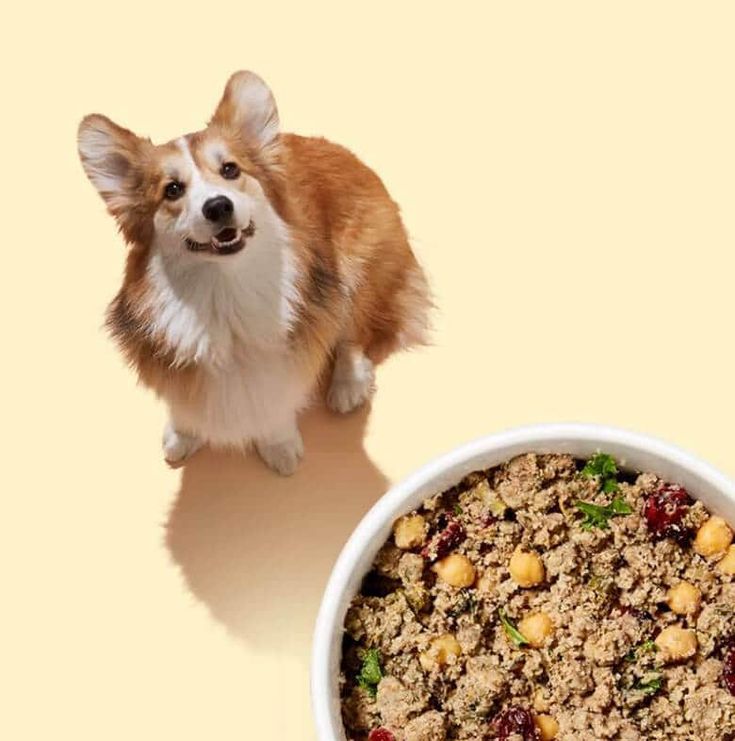It’s an exciting and happy moment to welcome a new puppy into your house. Making sure your pet has the right nourishment for healthy growth and development is one of your top priorities as a responsible pet owner. Is it okay for puppies to eat adult dog food? is a frequently asked question. This blog post will discuss the nuances of dog nutrition, the unique requirements of growing puppies, and whether or not adult dog food is a good choice for them.
Understanding the Nutritional Needs of Puppies
Puppies dietary needs are different from those of adult dogs, particularly in the early stages of their lives. Their rapidly growing organs and tissues, increased energy levels, and rapid growth are the main causes of these needs. The main nutrients required for a puppy’s proper growth are as follows:
Protein Requirement: Tissues, muscles, and organs all require protein for growth and repair. Compared to adult dogs, puppies need a higher proportion of protein in their diet. Protein promotes the puppy’s overall growth and aids in the development of strong muscles.
Fats: Healthy fats are an important source of concentrated energy for an active puppy’s diet and nervous system development. The promotion of brain growth and a lustrous coat is mostly dependent on omega-3 fatty acids.
Phosphorus and calcium are essential minerals for the development and maintenance of teeth and bones. In growing puppies, maintaining a balanced ratio of calcium to phosphorus is essential to preventing developmental orthopaedic problems.
Vitamins: Vital vitamins like A, D, and E help a number of physiological processes, including eyesight, immunity, and antioxidant defense.

How Adult Dog Food Differs:
Mature dogs that have outgrown their growing phase require different nourishment, which is why adult dog food is made to suit their demands. Puppies’ unique nutritional needs may not be met by the nutrient makeup of adult dog food. Here are a few notable variations:
Protein amounts: Compared to puppy food, adult dog chow usually has lower protein amounts. Puppies need more protein for growth and development than older dogs do for upkeep.
Ratios of Calcium and Phosphorus: Puppies may not benefit from the calcium and phosphorus content of adult dog food, which could cause problems with bone formation.
Caloric Density: Due to their lively and energetic personalities, puppies require more energy than adult dogs do. Puppy food frequently has a higher calorie density to satisfy these energy needs.
Possible Dangers of Giving Adult Dog Food to Puppies
While giving a puppy adult dog food once in a while might not be harmful, doing it consistently over time can result in nutritional imbalances and other health problems. Here are a few possible dangers
Developmental Problems: Deficits in essential nutrients, particularly protein, calcium, and phosphorus, can lead to skeletal deformities and compromised immune systems, among other developmental issues.
Energy Deficiency: To support their growth and maintain their energy levels, puppies require a larger calorie intake. A puppy’s fast growth phase may require more calories than adult dog kibble can offer.
Digestive Upset: Due to their delicate digestive systems, puppies may have gastrointestinal problems like vomiting or diarrhea when their diet is suddenly changed.

The General Difference Between a Dog And a Puppy
The key distinction between a dog and a puppy lies in their developmental stage and age. A dog is generally considered to be an adult canine, typically beyond the age of one year, depending on the breed. At this stage, dogs have reached physical and sexual maturity, and their behavior has stabilized. They exhibit a more predictable temperament, and their energy levels may have mellowed compared to their puppyhood. Dogs are often more adept at following commands and understanding human cues, having undergone the training and socialization processes necessary for a well-behaved companion. The term “dog” encompasses a broad spectrum of breeds and sizes, each with its own unique characteristics, but collectively, dogs are recognized as mature, fully-grown members of the canine family.
On the other hand, a puppy is a young canine that is still in the early stages of life and development. Typically, puppies are considered to be under a year old, with the exact duration varying depending on the breed. Puppies are characterized by their boundless energy, curiosity, and rapid growth. They are in the midst of learning essential life skills, socializing with their environment, and forming the foundation for their adult behavior. Puppies often require more attention, training, and supervision as they explore the world around them. Their playful nature and frequent bursts of energy make them endearing, but they also demand a commitment to training and socialization to ensure a smooth transition into well-behaved adulthood. In essence, while all puppies are dogs, not all dogs are puppies, as the term “puppy” specifically refers to the youthful and developing stage of a canine’s life.

Conclusion
Even though adult dog food might not immediately endanger a puppy’s health, it’s important to understand that pups have different nutritional needs than adult dogs. The best way to make sure your puppy gets the nutrients they need for a healthy start in life is to choose a high-quality, balanced puppy food that is especially made for their growing period. As usual, the best method to care for your pet is to discuss any potential difficulties and your puppy’s dietary requirements with your veterinarian.

